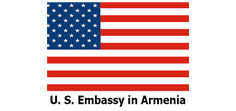On June 19, RA Foreign Minister HE Mr. Edward Nalbandian participated in the Eastern Partnership Ministerial Meeting in Luxembourg. In his speech made within the framework of the meeting, he noted, “The parliamentary elections held in Armenia in April were marked by unprecedented high number of international observers, who stated that the elections were well administered, fundamental freedoms were respected, and the results reflected the will of the population”.
Nevertheless, the RA authorities had created unreasonable obstacles for international observation missions during April 2 parliamentary elections. In particular, the following is noted in the published conclusions of the OSCE observation mission, “International NGOs were refused an invitation to observe the elections, which is at odds with OSCE commitments”. Moreover, some international NGOs had condemned the decision of the RA Central Electoral Commission not to send official invitation to them. Among them was the European Network of Elections Monitoring Organizations (ENEMO), which had strongly criticized the CEC’s response to their application to carry out observation mission during April 2 parliamentary elections in Armenia. Facing the same challenge, the European Platform for Democratic Elections (EPDE) had to enter the polling stations with the certificates of the ArmRusInfo news website belonging to “Union of Informed Citizens” NGO. CEC had justified its approach by the probability of “jams” in the polling stations. CEC had also noted that international organizations like OSCE/ODIHR, OSCE Parliamentary Assembly, PACE, the European Parliament, Inter-Parliamentary Assembly of the CIS have already been invited to carry out observation missions, and “there is no need to invite additional ones”.
On the other hand, though the international observers had noted that the elections were well administered and fundamental freedoms were mainly respected, they had also stated that the parliamentary elections were compromised by credible information about vote-buying and pressure on civil servants and employees of private companies. Such a conclusion is a very strict assessment by OSCE/ODIHR observation mission standards.
Hence, Mr. Nalbandian’s aforementioned statement is not quite true and is biased.

 FACTOMETER
FACTOMETER









